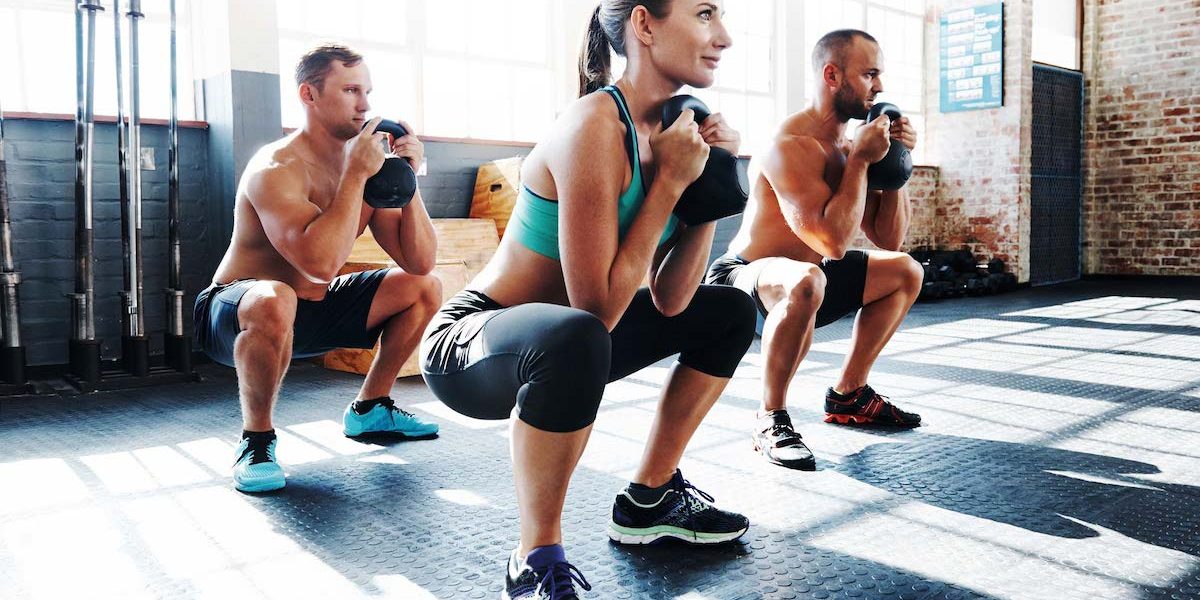How Regular Exercise Improves Your Mind and Body
It’s common sense that exercise is good for you, but how does it specifically affect your mind and body? It’s fascinating to learn about all the positive benefits of exercise in promoting health, quality of life and longevity.
When you first start to exercise, you’ll notice that you feel more alert and energized. This happens because your body makes feel-good chemicals when you exercise, and also because your heart rate increases, which raises the blood flow and oxygen to the brain and produces a sense of vitality. You may get sore or uncomfortable in the day or days after you begin – this is referred to as “delayed onset muscle soreness” (DOMS). While it’s inconvenient, it fades quickly and gets better with each workout until you don’t feel it much or not at all.
After a few weeks, your body starts to respond to the new demands being placed on it by changing your cells, the tiny bits of you that form into your body parts like organs, muscles, bones and nerves. The cells have little energy factories inside them, called “mitochondria,” which make energy out of the carbohydrates, fats and proteins in your food.
 When you exercise, your body innately knows to make more mitochondria to meet the increasing energy demand. This is called “mitochondrial biogenesis,” and as a result of having more mitochondria, you simply have more energy to use. In fact, after six to eight weeks, the cells can add as many as 50% more mitochondria, which dramatically enhances fitness and endurance.
When you exercise, your body innately knows to make more mitochondria to meet the increasing energy demand. This is called “mitochondrial biogenesis,” and as a result of having more mitochondria, you simply have more energy to use. In fact, after six to eight weeks, the cells can add as many as 50% more mitochondria, which dramatically enhances fitness and endurance.
Once exercise assimilates into your normal activities, you’ll continue to see health benefits. For example, after a year of regular exercise, your bones will increase in density – not only will osteoporosis be arrested, it can even be reversed, as the mechanical load across the bones signals the body to build them up.
While the physical advantages are plentiful, there is a financial benefit as well. Exercising thirty minutes a day, five days a week can save you $2500/year in costs for heart-related ailments. It also reduces your risk of arthritis, diabetes type 2, dementia and some malignancies, including breast and colon cancer.
And on average, if you develop a regular exercise routine, you’ll live longer, too. And during that longer life, you’re likely to feel well more of the time, because exercise lowers the risk of anxiety and depression by balancing your hormone chemistry, producing fewer stress hormones like cortisol and adrenaline and more feel-good chemicals like endorphins, serotonin, oxytocin and dopamine.
Obviously, the degree of impact you will experience personally will depend on the type, duration and intensity of your exercise and your level of commitment to follow through. Also, diet and nutrition will play a major role – providing the best fuel for energy production and the best internal environment for optimal function depends on including certain nutrients and avoiding toxins and irritants.
Consider your current level of fitness when you begin or change an exercise program. The US Department of Health and Human Services recommends either 150 minutes each week of moderately intense exercise, like walking or biking, or 75 minutes each week of moderate and high intensity exercise, like running or swimming.
In addition, blend some strength or resistance training into two days each week, to build muscle and improve speed and endurance. Work at your own pace, fast enough to get your body fully engaged, but not so vigorous as to injure yourself or overwhelm your current resources. Be patient, get in shape and you’ll be able to push harder soon.
There’s a cumulative effect – the longer and more consistently you exercise, the better you feel and the more good you do for your brain and body. Make progress, adding time and intensity to your workout gradually, and before you know it, you’ll be in excellent condition, looking and feeling your best.
As you add more stress to your body from working out, it is important to make sure your spine stays aligned though. If your posture is bad, then you won’t move correctly and you can cause dysfunction to your joints as your stress your body. Chiropractic care can help keep you functional as you begin your exercise journey!

